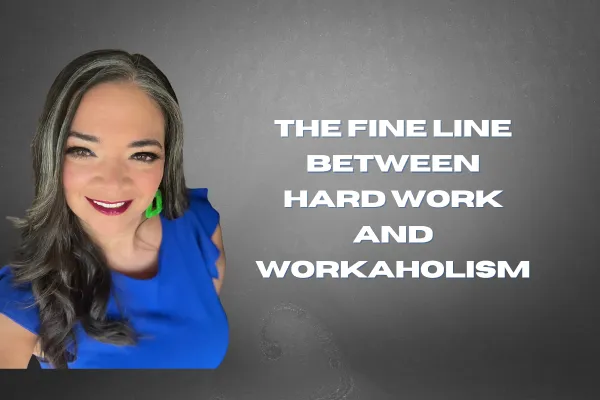Harness the Power of Exceptional Leadership

The Fine Line Between Hard Work and Workaholism: Finding Balance in the Modern Workplace
The pressure to succeed can sometimes blur the lines between dedication and obsession. As professionals, we often pride ourselves on our work ethic, but it's crucial to recognize when our commitment to work crosses into unhealthy territory.
Workaholism, as coined by psychologist Wayne Oates in 1971, is characterized by an uncontrollable need to work incessantly, often at the expense of personal well-being and relationships.
Unlike simply working hard, workaholism lacks a crucial element: balance.
Achieving a healthy work-life balance is essential for both mental and physical well-being. Yet, in a culture that often glorifies busyness and productivity, it can be challenging to draw the line between dedication and overwork.
Recognizing the signs of workaholism is the first step towards finding that balance.
Questions for you:
Do you find yourself constantly working long hours, even on weekends? Are you obsessed with productivity, to the point where it consumes your thoughts? Do you neglect your personal life in favor of work? These could be red flags indicating that you've crossed the line into workaholism.
It's important to understand that working hard and being a workaholic are not the same. Working hard is commendable—it shows dedication and commitment to your goals. However, when work becomes a compulsive need that overrides other aspects of your life, it's time to reassess your priorities.
So, how can you find a better balance?
Set boundaries for yourself, both in terms of time and priorities. However, not being able to do this might be a sign you need to look deeper within yourself and perhaps turn your attention to things you might want to numb.
Learn to say no to excessive work demands and make time for activities outside of work that bring you joy and relaxation. This was extremely hard for me to do and today I know it was because my feeling of inadequacy coming from my childhood experiences had conditioned me to use work as a numbing agent.
Seeking help. and I get it, this is hard! For me, understanding that asking for help is not a sign of weakness but a sign of strength was a monumental task, and because of this I totally understand how you feel about this.
If you find that workaholism is taking a toll on your well-being, consider reaching out to a mental health practitioner, coach or consultant accredited through the National Board of Certified Counselors like myself: You don't have to continue going through this alone.
The truth is that finding the right balance between hard work and personal well-being is not easy, but it is essential for long-term success and happiness. By recognizing the signs of workaholism and taking proactive steps to maintain a healthy work-life balance, you can thrive both professionally and personally.
Wondering if you could possibly be a workaholic? Click Here to check out this super quick and reliable quiz and find out.


